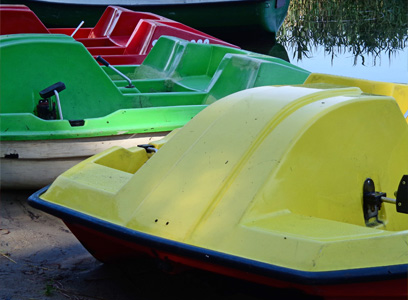 PROCESS : Hollow molds filled with powdered plastic are secured to pipe-like spokes which extend from a central hub. The molds rotate or tumble on 2 separate axes at once. The hub swings the entire mold into an enclosed furnace room which causes the powder to melt and stick to the insides of the tools. With the molds still tumbling slowly, the tools swing into a cooling room where sprayed water causes the plastic to harden into a hollow part.
PROCESS : Hollow molds filled with powdered plastic are secured to pipe-like spokes which extend from a central hub. The molds rotate or tumble on 2 separate axes at once. The hub swings the entire mold into an enclosed furnace room which causes the powder to melt and stick to the insides of the tools. With the molds still tumbling slowly, the tools swing into a cooling room where sprayed water causes the plastic to harden into a hollow part.
RAW MATERIALS : Mostly limited to LLDPE and crosslink polyethylene, a very hard material. Some molders are equipped to handle nylons, polycarbonates and cryogenically ground polypropylenes for specialized applications. The resin is in the form of a finely ground powder before processing.
TOOLING : Fabricated sheet steel tooling acceptable for simple shapes; cast aluminum tools necessary for more complicated parts. Multiple tools are usually hung on each machine arm.
COST : Low tooling costs and high piece prices are typical of this process. Cycle times average around 40-45 minutes.
ADVANTAGES : Very large parts can be manufactured. Chemical waste and storage tanks up to 2,500 gallons. Very low tooling costs.
DISADVANTAGES : Slow cycle times mean high piece prices. Narrow range of raw materials.
EXAMPLES : Agricultural tanks, fuel tanks, large outdoor toys, soft vinyl automotive armrests, spherical shapes & toy balls.
